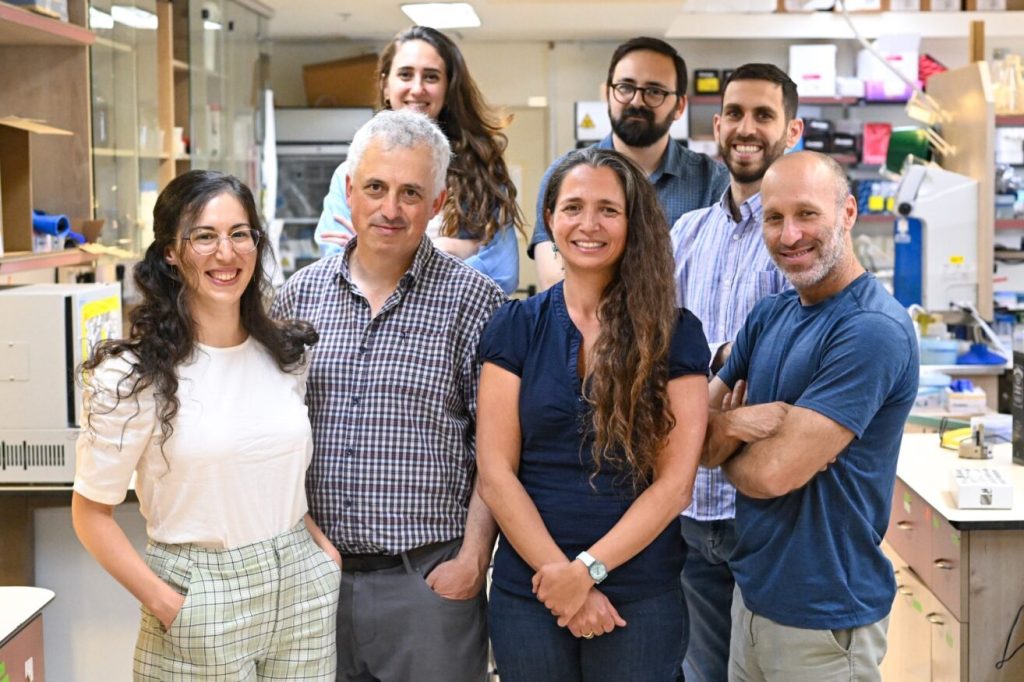News & Events
News

09 April 2024
Technion Researchers Unveil How Gut Bacteria Adapt During Inflammation
The research opens doors for targeted interventions aimed at restoring the balance of gut microbiota in IBD patients.
New Study Sheds Light on the Dynamic Role of Gut Bacteria in Inflammatory Bowel Disease
Recent research from the Technion has revealed how gut bacteria can modify their genetic "software" in response to inflammation, providing new insights into their relationship with the immune system. This discovery could offer valuable clues for developing treatments for inflammatory bowel diseases (IBD) like Crohn’s disease and colitis.

Gut bacteria, which have evolved alongside humans for millions of years, play a crucial role in the immune system's functionality. The gut environment is constantly changing, and bacteria must adjust to these shifts. A key way they do this is through a process called genomic plasticity, which allows them to undergo rapid genetic changes. Professor Naama Geva-Zatorsky and her team at the Technion’s Ruth and Bruce Rappaport Faculty of Medicine have been exploring this dynamic adaptability in collaboration with other researchers.
The research particularly focused on a group of bacteria called Bacteroidales, a dominant presence in the human gut microbiome. By studying over 2,000 individuals—both healthy and affected by disease—and conducting experiments with mouse models, the team discovered reversible DNA changes in these bacteria. These DNA inversions flip certain genes on or off, regulating the production of key molecules like polysaccharide A (PSA). PSA is crucial for the activation of regulatory T cells, which help control inflammation in the gut.

The study also highlighted the role of bacteriophages—viruses that infect bacteria—as a driver behind these genetic flips. In patients with IBD, researchers found that the PSA production in bacteria was frequently turned off, likely due to an increased presence of bacteriophages. Experiments in mice further showed that these viral interactions led to a decrease in regulatory T cells, worsening gut inflammation.
The research unveils a sophisticated survival mechanism in gut bacteria that allows them to adapt to environmental pressures like inflammation. However, this adaptability can have negative consequences, as it may reduce the production of molecules like PSA that are essential for immune regulation.
“Our research uncovers a fascinating dynamic where gut bacteria reprogram their gene expression in response to inflammatory conditions,” said Prof. Geva-Zatorsky. “While this genomic flexibility helps bacteria survive, it may also contribute to disease progression. This opens up new opportunities for targeted therapies that aim to restore gut microbiota balance in patients with IBD.”
This groundbreaking study could pave the way for innovative treatments designed to recalibrate the gut’s bacterial environment, offering hope for better management of chronic inflammatory diseases.
The research was supported by the European Research Council (ERC), the Technion President’s Fund, the Ruth and Bruce Rappaport Cancer Research Center, the Rappaport Family Institute for Research in the Medical Sciences, the Council for Higher Education (Alon Scholarship), the Israel Science Foundation, the Dan and Betty Kahn Foundation, Seerave Foundation, CIFAR, Human Frontier Science Program, and the Gutwirth Fund.
The Research has been published in the Journal Cell Host & Microbiome




